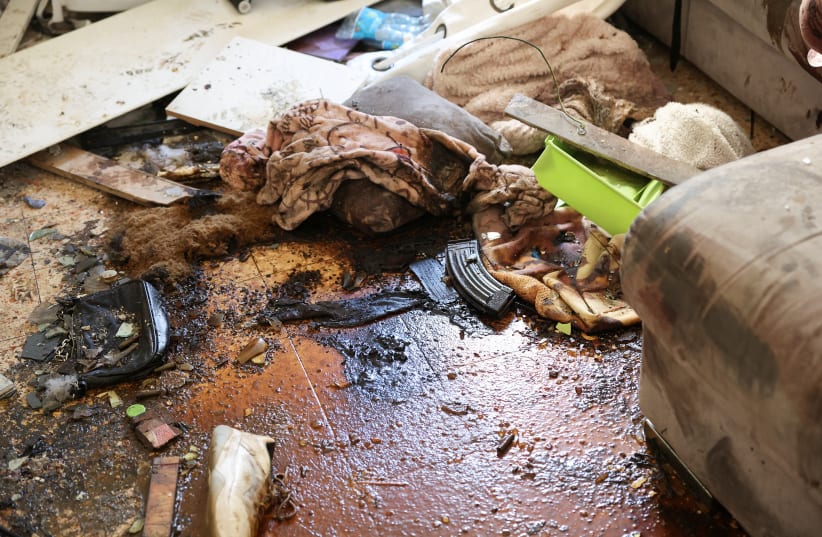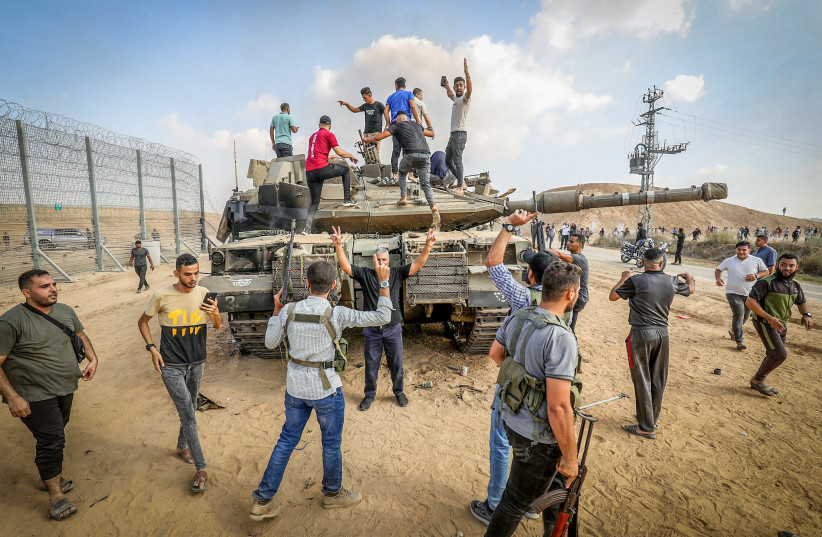Tariq Abu Erar, a Bedouin doctor from the village of Ararat an-Naqab (previously Aroer) in the Negev, was on his way to his shift at Barzilai Hospital in Ashkelon on October 7. As he passed a junction close to Sderot, he noticed a wounded man on the side of the road. Tariq assumed it was a car accident and stopped his car to help the man. To his dismay, it was not a traffic accident, but rather an ambush set by Hamas terrorists.
In his own words, Dr. Abu Erar told Maariv what happened before and after that moment: "I had a first aid kit and a safety helmet, because my wife called while I was in the middle of the road and told me there were sirens in the village and there were casualties. She told me there was a conflict, and it was clear it was from Gaza."
He then described the harrowing experience when Hamas terrorists surrounded him: "After they shot me in the chest and then in the leg, they captured me and tied me to a pole. They started questioning me; I was in shock, I thought it was a dream."
They asked Tariq questions, like "Where are you from?" and "Where are you going?" At first they thought he was a Jew, when he told them he was a Muslim, they spoke to him in Arabic. "They asked me verses in the Koran. What are the people of the Prophet Muhammad? Then they said: "Shut up, you traitor, you are working with Jews," he recalled.
For over an hour, while he was tied up and slowly losing hope and blood, he was forced to witness Hamas terrorists commit acts of violence against others in the area, going car by car and killing the people inside.
Tariq recounted: "They are very barbaric. Not people! They shoot without hesitation, without emotion, they had a clear goal and knew what they were doing." Eventually, Israeli forces arrived and engaged the terrorists in combat.
"When the soldiers arrived, I was stressed. I thought they would be confused, thinking I was one of them, and shoot me and kill me, but luckily one said 'Stop, stop, he's a hostage,' and they identified me," he added.
IDF soldiers rescue Tariq from Hamas captors
Tariq then described the moment that IDF soldiers went to rescue him from his armed captors. "There were two terrorists waiting for the soldiers to get closer to me so they could shoot them." Despite the chaos, Tariq managed to signal to the soldiers and point out additional terrorists hiding on the side. "Unfortunately, the terrorists killed two soldiers, but they fell as heroes," he said.
Throughout the event, Tariq shares that "there were no thoughts, just that I was going to die, that was the only thought I had." He believed that thanks to the bravery of the Israeli soldiers, many residents of the area were saved. "They could have advanced further into the streets and even to Ashkelon," Tariq added.
Tariq was transported from the battlefield to Soroka Hospital via a United Hatzalah ambulance after the incident. Even while in the hospital, he found it difficult to grasp the reality of what had transpired. "I was in the hospital, safe and protected, but despite the pain and injuries, it all felt surreal. I felt like I was living in a movie, in a dream."
Tariq sustained injuries to his hand, chest and leg. He was treated at the hospital and is now undergoing a rehabilitation program. He expressed satisfaction with the care he received, and his rate of recovery. "They're helping me recover mentally, physically, and emotionally." Nonetheless, he acknowledged his limitations: "I'm still weak, moving slowly, but I've resumed part-time work."

